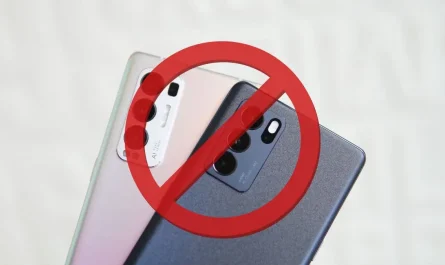7 Small Habits That Make a Big Difference in a Clean Home
Some people simply always have clean homes, let’s face it. When you enter, everything seems to be at ease. Not a single stray sock under the sofa, no dishes in the sink, and no mess on the counters. It’s not about being a neat freak or having a housekeeping. It has to do with habits.
The majority of us were not brought up with real-world systems that function, particularly when we’re exhausted, overburdened, or busy. Additionally, it’s simple to put off cleaning until it becomes a chaotic situation when it always seems like a big, irritating duty.
But those who maintain a clean home? They don’t wait for chaos to occur. They have developed little routines that subtly manage their day without them having to think about it all the time.
I’ll explain seven easy things those folks do in this post, along with how you may begin doing the same. These aren’t Pinterest-worthy regimens or flowery recommendations. For real individuals, these are real-world behaviors. You just need a few things that genuinely work without exhausting you, not more incentive.
Let’s get started.
1. They Clean As They Go Not Later
Everything changes because of just one behavior. People who keep their homes tidy deal with messes as they arise rather than waiting for them to accumulate. They clean anything that spills. The dishes go immediately into the dishwasher once they finish dinner. No, I’ll finish it later.No negotiating in the mind.
Although it may seem insignificant, this habit subtly gets rid of 80% of the trash before it becomes an issue. The sink remains unobstructed. Counters remain functional. Nothing intensifies to the point that I feel overwhelmed.
And no, perfection isn’t the point. The key is momentum. Your house no longer becomes a weekend recovery project once you become accustomed to completing simple tasks right away.
According to Real Simple, those who effortlessly maintain a clean home, particularly those who are balancing busy schedules or families, have clean-as-you-go routines. It’s preventative as well as practical.
This is how you can make it possible:
- Don t aim to clean the whole kitchen. Just rinse the plate now.
- Toss clothes in the hamper as soon as you take them off.
- Wipe the bathroom counter after brushing your teeth.
It’s shifting when you do the task, not more labor. It also saves you hours over time.
Act as though later doesn’t exist for a single day. The amount of cleaning you actually need to do will surprise you.
Which task do you consistently put off that eventually becomes a bigger mess? Catch that one in the moment first.
2. They Never Let Clutter Get Comfortable
Among the most underappreciated behaviors of those who maintain a tidy home? They don’t allow random things to come up. Mail is not left on the counter for days at a time. The doorway is not where shoes reside. Next week, that one delivery box won’t be there.
A receipt, a pair of sunglasses, or an Amazon return are examples of clutter, but the moment you let them sit, they blend in with the background. These room-by-room decluttering tips will help you take quick, targeted action in as little as ten minutes if you’re having trouble clearing up cluttered areas without spending hours.Clutter is treated as a short-term guest rather than a permanent one by people who keep their homes tidy.
It has nothing to do with minimalism. It has to do with friction. The more items you omit, the more difficult it is to clean around them and the more daunting it seems at first.
To develop the habit, follow these steps:
- Do a 3-minute surface reset before bed. No deep cleaning just visual clarity.
-
Create a
drop zone
for stuff you genuinely don t have time to deal with yet but limit it to one basket or tray. - Don t bring in new items unless you have a spot for them.
If clutter is not permitted to persist, it need not be an issue.
Which surface in your house is the most likely to become cluttered? Take that one first. Completely declutter it, then treat it like the valuable property it is.
3. They Stick to Micro-Cleaning, Not Marathon Cleaning
Those all-day deep cleanings you see on Instagram are rarely performed by people with spotless homes. Why? since they are not required to. They work in short bursts of a few minutes here and there to keep things operating smoothly rather than allowing chaos to accumulate.
Discipline is not the issue here. It’s important to avoid waiting until the situation becomes intolerable. Brush your teeth and clean the bathroom mirror. After supper, vacuum just the hallway. Fast passes that give the impression of control over the chaos.
This method eliminates tension, guilt, and the ongoing mental burden of “I need to clean, but I don’t have time.”
According to Southern Living, those who have perfected the skill of doing little things frequently rather than large ones occasionally tend to have the cleanest homes. Being consistent is more important than being compulsive.
Try these moments of microcleaning:
- One drawer or shelf a day instead of the whole closet
- Wipe the sink while your coffee brews
- Do one load of laundry daily instead of a full weekend pile-up
The key isn’t exerting more effort. The task is getting so much smaller that it is becoming nearly automatic.
Which housekeeping task do you avoid because you think it’s too big? Start by dividing it into 2-minute segments.
4. They Don t Rely on Motivation They Rely on Systems
Motivation is not always dependable. Clean homes are aware of this and do not rely on it. Instead, even on the days when they don’t feel like cleaning, they put in place basic processes that make the task automatic.
It might be a15-minute reset after dinner, a weekly Sunday reset, or a small routine tied to something they already do like wiping down counters right after morning coffee. Decision fatigue is lessened by these systems. You don t have to think. You just follow the rhythm.
The power is in predictability. When cleaning becomes part of your environment, it stops feeling like effort.
Here s how to build your own system:
- Attach a small task to an existing habit (e.g., tidy while your food s in the microwave)
- Use recurring calendar reminders if you forget
- Involve others shared systems prevent resentment
If your current approach to cleaning depends on youfeeling in the mood, it s not sustainable. Start with just one trigger-based habit and let that anchor the rest.
What s one daily habit you already have where you can sneak in a 1-minute cleaning task?
5. They Make Their Homes Easy to Maintain Not Just Pretty
Clean homes aren t always about how they look they re about how they work. The people who seem effortlessly tidy don t just organize once and hope for the best. They set up their space so it naturally stays under control.
That means choosing low-effort solutions: closed storage over open shelves, easy-to-wipe surfaces, donation bins that are always accessible, and clear zones for everything especially the things that tend to pile up.
It s not about aesthetic perfection. It s about designing your space to help you succeed. Whether you re settling into a new space or upgrading your current one, thesehome maintenance mustswill keep things functioning smoothly behind the scenes so mess doesn t sneak up on you.
Ideas to make your space more maintenance-friendly:
- Keep a donation bag in your closet so unused clothes don t pile up
- Use trays or bins to visually contain mess
- Store cleaning wipes in the bathroom for quick resets
The best homes aren t just clean they stay clean without exhausting the people who live in them. That s the goal.
Look around your space: what s one thing that constantly gets messy? How can you redesign that area to make it easier, not harder?
6. They Have a Reset Routine Not a Cleaning Spree
People with consistently clean homes don t wait for things to spiral. Instead, they build in simple reset moments daily or weekly that bring the space back to zero. These aren t deep cleans. They re fast, repeatable check-ins that stop chaos before it builds.
Think of it like brushing your teeth. You don t wait until your teeth feel dirty you do it every day so they don t get that way in the first place.
Your home works the same way.
Whether it s a10-minute evening tidy or a Sunday morning floor sweep,resets give structure to the week. They bring a sense of control and rhythm even when life feels messy.
Ways to create your own reset routine:
-
Evening reset
: clear kitchen counters, fluff the couch, toss laundry in the basket -
Weekly reset
: floors, trash, mirrors, bathroom wipe-down -
Visual reset
: make the bed, open curtains, light a candle it signals
fresh start
These small resets don t just clean your space they clear your head.
What time of day naturally works for you to hit reset? Morning? After work? Start small, but protect that time like it matters because it does.
7. They Declutter Regularly Even When Nothing Looks Messy
People with truly clean homes don t wait until drawers are overflowing or closets are jammed shut. They declutter before things become a problem. That s the real secret: editing in small, regular doses.
This doesn t mean they re always purging or obsessed with minimalism. It just means they re honest with themselves about what they actually use and they don t keep thingsjust in caseif those things are stealing space or peace of mind.
Decluttering isn t an event. It s a mindset.
Good Housekeepinghighlights that clutter is one of the biggest factors in homes feeling dirty even when they re technically clean. Too much stuff makes cleaning harder, mess feel worse, and stress creep in. Got a storage zone that silently fills with someday stuff? Try thesegenius attic decluttering strategiesthat make even the most ignored spaces easier to manage.
Here s how to keep it simple:
-
One in, one out
: buy something, donate something -
Monthly sweep
: one drawer, shelf, or bin at a time -
Keep a donation box nearby
always ready to catch what you no longer need
Decluttering doesn t have to be emotional or dramatic. It s just routine maintenance for your home and your mind.
Ask yourself: what s the one area in your home that s full ofI ll deal with it laterstuff? Start there. You ll feel the difference in minutes.
What It All Comes Down To
If your home never quite feelsunder control, it s not because you re lazy or messy it s because no one taught you the right systems.
People with clean homes aren t superhuman. They ve just built quiet, consistent habits that make a huge difference over time. Most of them don t even think about it anymore it s just how they live.
And the good news? You don t have to overhaul your life to get there. You just have to start noticing how your space works and shift one or two habits at a time.
Cleaning as you go. Catching clutter early. Making resets part of your rhythm. These are small changes but they ripple outward. You ll feel it every time you walk into your space and don t feel overwhelmed.
So here s the question:
Which one of these habits do you want to try first and what s stopping you?
Tell me in the comments. I d love to hear how your home feels once you shift even one of these.
Want more smart, doable habits for a cleaner home?VisitBuild Like Newfor tips that actually work without the overwhelm.
Disclaimer:This article is for informational purposes only and does not replace professional cleaning or organizational advice. Always choose methods that work best for your home and lifestyle.
Table of Contents
-
-
1. They Clean As They Go Not Later
-
2. They Never Let Clutter Get Comfortable
-
3. They Stick to Micro-Cleaning, Not Marathon Cleaning
-
4. They Don t Rely on Motivation They Rely on Systems
-
5. They Make Their Homes Easy to Maintain Not Just Pretty
-
6. They Have a Reset Routine Not a Cleaning Spree
-
7. They Declutter Regularly Even When Nothing Looks Messy
-
What It All Comes Down To
-
-
1. They Clean As They Go Not Later
-
2. They Never Let Clutter Get Comfortable
-
3. They Stick to Micro-Cleaning, Not Marathon Cleaning
-
4. They Don t Rely on Motivation They Rely on Systems
-
5. They Make Their Homes Easy to Maintain Not Just Pretty
-
6. They Have a Reset Routine Not a Cleaning Spree
-
7. They Declutter Regularly Even When Nothing Looks Messy
-
What It All Comes Down To




